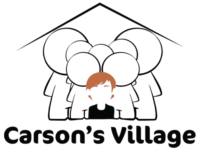It is a gift to those we love if we can share our voices and name how we would like to face life even as it comes to an end. As a caretaker, you can help your loved one to voice decisions concerning their care.
Life and death discussions are challenging. It is understandable that you are wary to face the reality of losing the person you love. You do not have to do this alone. Feeling the pressure of making big decisions can be isolating, so remember to build as much support for yourself as you can. It may be helpful to discuss the prognosis with the Doctor or Social Worker who is working with your family. They will have a better idea of the logistics and planning that may be necessary in keeping your family member comfortable. You may want to access your clergy to help you navigate through some of the spiritual questions that may come up. There may be other family members, who are a little more removed from the day to day care, to help guide or buffer the conversations. Having these discussions early on will allow the voice and choices of your loved one to shine through the rest of their days.
Approaching end of life discussions:
Having the talk about end of life preferences can be tricky, especially since each person will respond differently based on their own feelings and situation. It can feel uncomfortable to be asked about end of life wishes, and it can feel intrusive or scary to have to respond. Don’t be surprised if there are some sad, awkward, or ambivalent times throughout this conversation.
Planning is part of living and it’s not too soon to plan this last stage.
Here are some tips for how to start the conversation:
- Plan a specific time to have the conversation, rather than bringing up the topic at a random time. It may take a number of tries, but the more you can empower your loved one to voice their opinions the more tools you will have to care for them.
- Start with some simple yet important questions, such as:
-
- What does a good day look like?
- How much attention do you want when you don’t feel good?
- Name 3 things that bring you comfort (physically, emotionally and spiritually)
- What are your living goals as time progresses?
- Complete the sentence: As long as I can _________I will feel alive.
- What part of this disease scares you?
- After you’ve covered some of the more general information, move into the more medical-oriented questions. Doing this later on in the conversation can give the person time to warm up and will help the questions feel less abrupt.
- As a patient, how much information do you want to have? Nothing or All the details
- How comfortable are you at sharing your information with others? I’m private or Everyone can know
- At the end of my life, I would rather: Stay at home or Be in a facility
As you move along in your conversation, some other topics to cover would include medical directives, power of attorney, and knowing preferences around stopping treatment. You may also want to consult with an attorney regarding legal documents, such as a healthcare proxy (document that names the person who will make medical decisions) and living will (advanced directive that identifies wishes for care).
Your loved one may need to talk about:
- Their bucket list
- Forgiveness and reconciliation
- Guardianship of children
- Personal possessions and gifts
- Funeral arrangements
- Theology
- Legacy
If you are still feeling uncertain as to how to facilitate these conversations, reach out to clergy, hospice, or a therapist. Keep in mind, many of these topics and doing the work around what someone’s death will look like and what it means can trigger your own emotions and experiences. You may need support for yourself in addition to your loved one.
This can be a scary yet sacred opportunity to give your loved one space and time to discuss those qualities of life that are most important to them. You are giving them a gift and in return you may just find comfort and healing for yourself.
~Sarah Messinger, Rabbi, MFT
